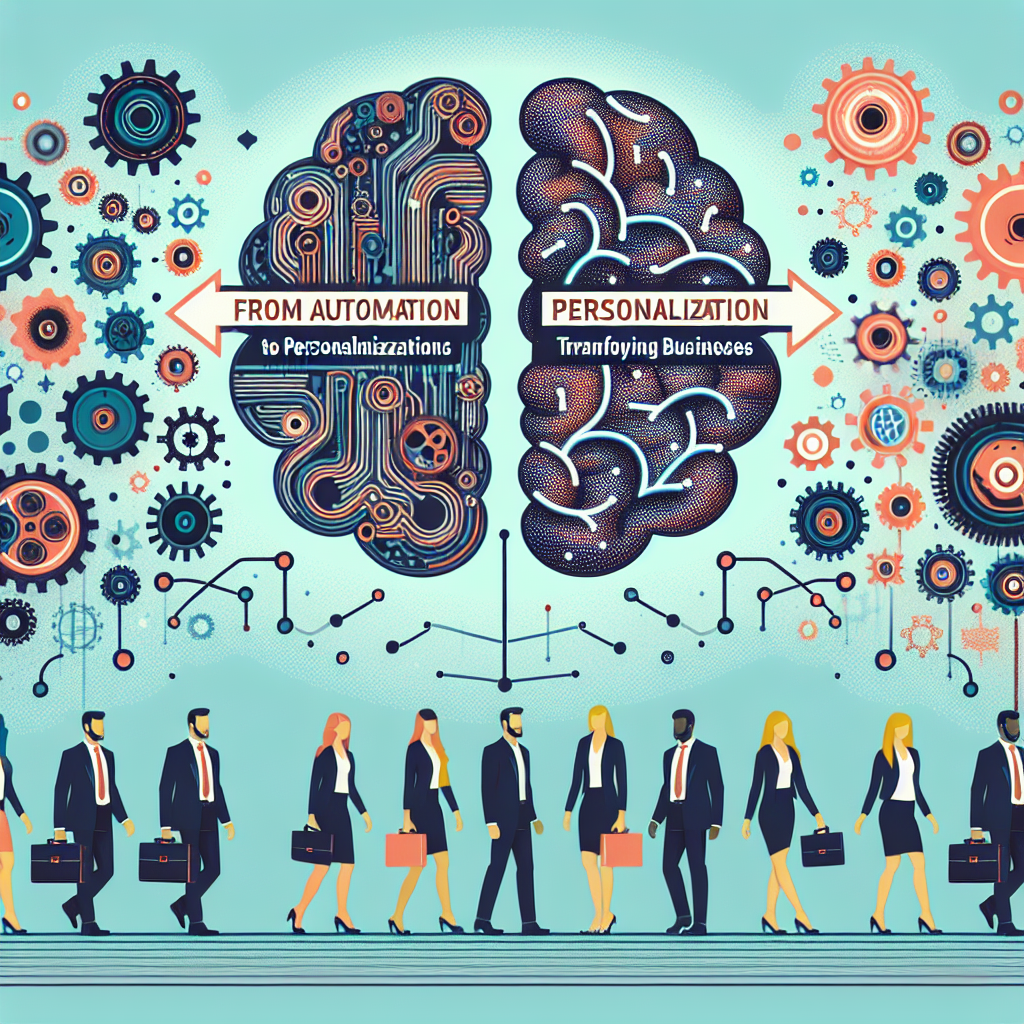From Automation to Personalization: AI Trends Transforming Businesses
In recent years, artificial intelligence (AI) has made significant strides in transforming the way businesses operate. What started as a tool for automation and efficiency has now evolved into a powerful force for personalization and customer engagement. As businesses embrace AI technology, they are able to better understand their customers, anticipate their needs, and deliver more personalized experiences.
AI Automation
One of the most significant ways AI has transformed businesses is through automation. By leveraging AI-powered tools and algorithms, businesses can streamline processes, reduce manual labor, and optimize efficiency. This allows organizations to focus on higher-level tasks and strategic decision-making, rather than getting bogged down in repetitive or tedious tasks.
AI automation can be applied to a wide range of business functions, from customer service and marketing to supply chain management and production. For example, chatbots powered by AI can handle customer inquiries and provide real-time support, freeing up human agents to focus on more complex issues. Similarly, AI-powered algorithms can analyze vast amounts of data to identify trends and patterns, enabling businesses to make more informed decisions.
Personalization and Customer Engagement
While automation is important, businesses are increasingly turning to AI for personalization and customer engagement. By leveraging AI technologies such as machine learning and predictive analytics, businesses can gain deeper insights into their customers’ preferences and behaviors. This allows businesses to deliver more personalized and targeted experiences, ultimately driving customer loyalty and engagement.
For example, e-commerce companies can use AI to recommend products to customers based on their browsing history and purchase behavior. Personalization engines can analyze data in real-time to deliver personalized content, offers, and recommendations to each individual customer. By providing a more personalized experience, businesses can increase customer satisfaction and drive repeat purchases.
AI Trends Transforming Businesses
As AI technology continues to advance, several key trends are shaping the way businesses operate:
- Conversational AI: The rise of chatbots and virtual assistants that use natural language processing to interact with customers in a more human-like way.
- AI-driven marketing: The use of AI to analyze customer data and deliver more targeted marketing campaigns across digital channels.
- Predictive analytics: The use of AI to forecast future trends and behaviors, enabling businesses to make proactive decisions.
- Personalization at scale: The ability to deliver personalized experiences to thousands or millions of customers in real-time.
By embracing these AI trends, businesses can stay ahead of the curve and deliver truly transformative experiences to their customers.
Conclusion
From automation to personalization, artificial intelligence is revolutionizing the way businesses operate. By leveraging AI technologies, businesses can automate routine tasks, gain deeper insights into their customers, and deliver more personalized experiences. As AI continues to evolve, businesses that stay at the forefront of these trends will be better positioned to succeed in today’s competitive market.
FAQs
Q: What industries can benefit from AI automation?
A: Virtually every industry can benefit from AI automation, including retail, healthcare, finance, and manufacturing. AI automation can streamline processes, reduce costs, and improve efficiency across a wide range of business functions.
Q: How can businesses leverage AI for personalization?
A: Businesses can leverage AI technologies such as machine learning and predictive analytics to gain insights into customer preferences and behaviors. By delivering more personalized experiences, businesses can drive customer engagement and loyalty.
Q: What are the key challenges of implementing AI in Business?
A: Some key challenges of implementing AI in Business include data privacy concerns, lack of skilled talent, and the need for ongoing training and education. However, businesses that overcome these challenges can reap the rewards of AI technology.
Quotes
“AI is not a trend, it’s a transformational force that will shape the future of businesses in profound ways.” – John Smith, AI Expert
What are some potential challenges in implementing a new company-wide technology system?


